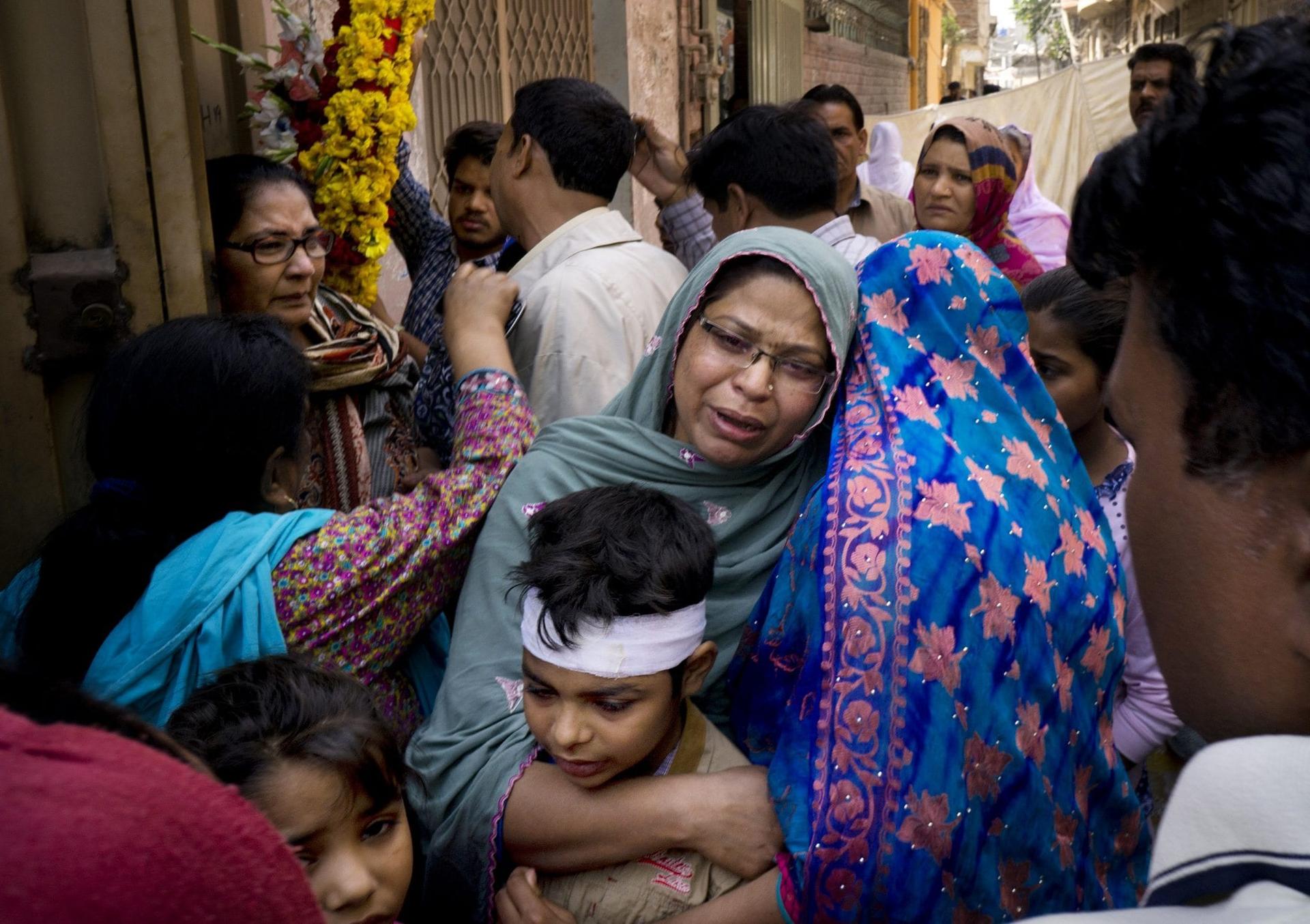ROME— Yusuf Farid was a 28-year-old Koranic school teacher living in the Pakistani town of Muzaffargah who, on Sunday, wrapped himself with 40 pounds of explosives and stood next to the main gate of Gulshan-e-Iqbal park, in Lahore, patiently waiting for people to congregate as they left the park at closing time.
When he blew himself up, he was surrounded by men, women and children, who had spent the afternoon celebrating Easter.
The explosive devise he used, just like the ones used in Brussels some days prior, had metallic shredding materials to cause as much damage as possible.
The suicide bombing came only a year after, in similar circumstances, two Christian churches were targeted. In March of 2015, 17 people were killed. Soon after the attack an angry mob took justice into their own hands, attacking the alleged collaborators.
As a direct result of that uprising, over 300 young Christians were imprisoned, accused of being terrorists, some 60 of whom are still in jail because they don’t have the money needed to buy their own freedom.
Since then, the Catholic and Protestant minorities, which together represent less than 2 percent of the total Pakistani population, have been on high alert, hiring their own security to guard the gates of their churches and paying more attention to who goes inside.
“They wanted to attack us during Christmas, but thanks to God, things didn’t go as they planned,” said Maria, a Pakistani woman who spoke to Crux on Tuesday from Lahore, on the condition her identity be kept confidential since she’s afraid of what might happen to her and her family.
“But three months later, they found a different way,” she added, in reference to Sunday’s blast, which killed more than 70 people and hurt hundreds.
Maria, a Catholic, attends the church that was attacked last year. Even though she and her family weren’t in the park on Easter Sunday, some of their neighbors were. One of them died, and another was gravely injured and will probably lose one of his legs.
Also on Sunday, as the news of the terrorist attack orchestrated by a splinter Taliban group with ties to ISIS was making headlines around the world, over 25,000 Muslims gathered in the country’s capital, Islamabad, demanding that a Christian woman named Asia Bibi, who has been imprisoned since 2009 for blasphemy, be executed.
The charges against Bibi originated after a discussion she had over a bowl of water with three Muslim women while working on a crop field in the Punjab region. A mother of five, she’s an involuntary point of reference for human right movements around the world trying to abolish blasphemy laws.
The crowd had gathered on Sunday because of the execution of a Muslim who in 2011 murdered his boss, governor of the Punjab region Salman Taseer, a moderate Muslim who vocally protested the blasphemy law after meeting Bibi.
“Today, terrorism is a global thing, it’s happening in Europe … but for us here, as Christians, it’s different: no one takes care of the minorities,” Maria said.
She argues that when something happens in Paris or Belgium, people get to know what happened, who orchestrated it, how and when did the terrorists get into the country. And they have to face the consequences.
“We don’t get that in our country … we don’t get justice,” she said.
The government announced Monday night that the military would take charge of the investigation, and Maria is among those who see some hope in this decision. She, like many other members of minority groups in Pakistan, sees the army as the only security force that might do something, because many in the police force are sympathetic with Muslim extremism.
However, she knows that her hope is not shared by everyone.
“You can’t tell someone who’s been in constant danger, who has experienced this violence time and time again, as a routine, that this time it’ll be different, that things will actually change this time around,” she said.
A university graduate who had the opportunity to live in the in Europe for a while, Maria also shared a question that she’s gotten from her own friends in Pakistan: “Where are the Christians of the West? Why don’t they help us? Do they pray for us?”
Seeing the world’s response to the migrant crisis, and how refugees are being welcomed in Germany and in Italy, Catholics and Pentecostals in her country feel ignored, she said, almost as if they weren’t in danger.
“We’re not safe here! Is it less dangerous that somewhere else?”
Many in Pakistan, she says, don’t think so, insisting that Christians countries can do more than they currently do to help those being threatened for their faith in her region.
“Keep me in your prayers,” she said, before ending the call. “That’s very important for me today, because the truth is, anything could happen.”















